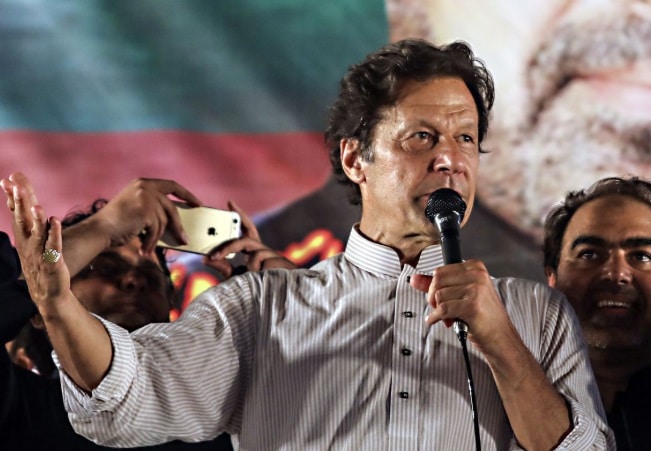Imran Khan, a sporting legend, is now a political leader as Prime Minister of Pakistan. For his supporters, and even some of those more sceptical, there is hope that his ascension can bring stability and prosperity to the nation, changing Islamabad’s image on the world stage.
Perhaps the greatest hope is that relations with India, the historical foe of Pakistan, will improve to a high point after 70 years often marked by conflict. Though Indian Prime Minister Narendra Modi has taken a tough line, Imran has indicated a willingness to usher in cooperation. Following the Kerala floods, which have claimed the lives of more than 1000 people since July, the new Prime Minister offered any assistance that India required.
Success is the Only Option for Pakistan’s New PM Imran Khan
It’s The Economy — Imran Khan Likely to Continue Pakistan’s Approach to Middle East
The Kashmir Question
But the regional security dilemma of Kashmir still dominates Indo-Pak relations, with Imran labelling it “the biggest problem”.
During the 1947 partitioning of India and Pakistan, Kashmir was given the choice of joining either country. Though the majority of citizens were Muslims, the Hindu ruler Maharaja Hari Singh decided to remain as an Indian state. Periodically, there is violence as both sides continue to claim ownership of the strategically significant area, with pro-Kashmiri independence and pro-Pakistan groups clashing with Indian armed forces. More than 41,000 people are estimated to have been killed in the past 27 years within the volatile territory.
So why might Imran change this history and bring in dialogue? The answer is in Pakistan’s faltering economy, hit earlier this month by the cancellation of $300 million in payments by the Trump Administration, claiming dissatisfaction with Pakistan’s fight against terrorism. The World Bank predicted that Pakistan’s economy will show negligible growth within the foreseeable future.
Pakistan’s top military advisor, Gen. Qamar Javed Bajwa, who has embraced Imran’s display of a new engagement between the Government and the armed forces, believes that Pakistan’s economic situation is precarious. Conversely, growth can make extremist and fringe groups less attractive. So Bajwa and other military chiefs have reached out to India to resume talks over Kashmir — suspended since 2015 — believing trade and access to regional markets can play a role in settlement.
But this leaves the question of New Delhi’s response. India’s growing economy does not hinge upon improved trade relations with Pakistan, and Prime Minister Modi has cemented a strong contingent of supporters who identify as Hindu Nationalists fundamentally opposed to Pakistan. With elections looming in India, it would be risky for Modi and his BJP party to alienate their base.
Still, this should not shatter the optimism of many within the region. Imran’s educational and political trajectory — and his exposure to India through sporting encounters — means that Pakistan has a leader with a distinct outlook on the world and Islamabad’s place in it. He seems genuine in his ambition to better relations between the two historical rivals.
He carries both the incentive and burden of seeking history — if he is successful, this would be the dawn of a new age in South Asia.

